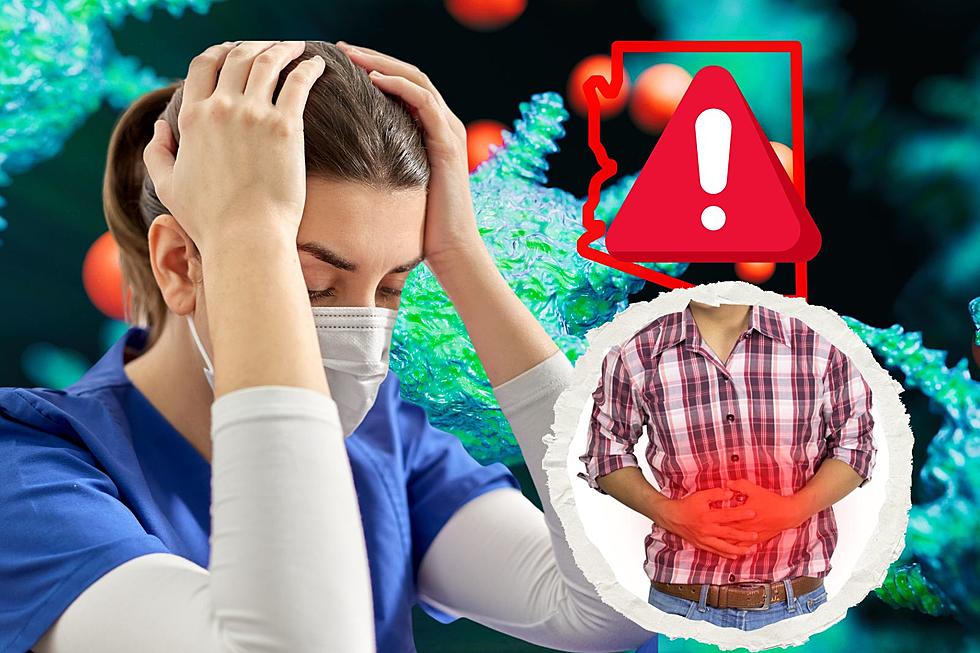
Health Alert! Highly Contagious Virus is on the Move in Arizona
- Severe vomiting and diarrhea? You could have this virus.
- This highly contagious virus is spread person-to-person and through infected food preparation surfaces.
If it seems like everyone around you is sick right now, it's not your imagination. With a wide array of contagious respiratory viruses currently making the rounds across the state, it may seem like everyone is suffering the symptoms of everything from a cold to the Virus That Shall Not Be Named.
But respiratory illness isn't the only sickness plaguing us right now. A new virus is spreading rapidly across Arizona.

The New Virus Making the Rounds in Arizona
Arizona is currently dealing with the resurgence of a highly contagious virus. According to the Mayo Clinic, this virus spreads easily from one infected person to another. It's often circulated through food or water that's been contaminated during preparation.
According to the CDC, norovirus causes around 900 deaths across the United States every year, mainly in older adults who are 65 and older.
READ: New CDC Guidelines for Covid Isolation Could Affect Arizona
Norovirus infections are on the move, and they're highly contagious. They can start suddenly and cause severe vomiting and diarrhea. You might hear people referring to norovirus as the “stomach flu,” but since the influenza virus doesn't cause norovirus, it's not a "flu."
Who is Most at Risk with Norovirus?
Everyone is at risk of contracting norovirus, and the good news is that most people recover in one to three days.
During that time, it's best to focus on staying hydrated with water, sports beverages, or simple broths since dehydration through fluid loss is one of the biggest worries when fighting this illness. Handwashing is especially important to prevent others from getting sick.
READ: Arizona's Top 9 Fears This Year
How to Treat Norovirus and How to Prevent the Spread
Most people recover completely, but this virus can particularly impact young children, older adults, and people with other medical conditions. Severe dehydration can be life-threatening and require medical intervention.
Especially with those most at risk, watch for signs of dehydration and contact a doctor or medical professional as soon as possible.
Antibiotics don't work on norovirus - or any virus - so the best course of action is rest, fluids, and time.
."}" data-sheets-userformat="{"2":33554688,"11":4,"28":1}">
KEEP READING: See 25 natural ways to boost your immune system
."}" data-sheets-userformat="{"2":33554688,"11":4,"28":1}">
LOOK: 20 tips to help your houseplants survive the winter
9 of the Top Things Arizona is Worried About this Year
Gallery Credit: Val Davidson/TSM
More From K101
![A Big [Small] Town Feeling! What It’s Really Like to Live in Sierra Vista, Arizona](http://townsquare.media/site/1122/files/2024/05/attachment-110.jpg?w=980&q=75)








